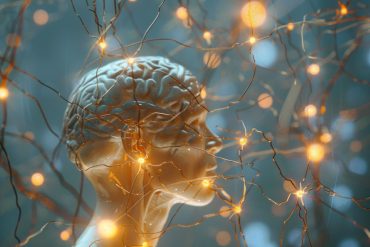Summary: Researchers question the ethical implications of using neuroscience techniques for legal cases.
Source: Frontiers.
Neuroscientific techniques continue to advance, but their applications in law raise concerns of a threat to individual rights. Previous applications of neuroscientific evidence include using brain scans to detect deception in an individual, and neurological responses to determine whether someone has intimate knowledge of a crime. However, just because we can use this technology, does it mean we should?
A review published in Frontiers in Neuroscience explores the current literature and advancements in the applications of neuroscience in law. This brings into question the ethical implications that come with the possibility of a person unwillingly revealing their own guilt.
“Brain science is being viewed for its potential to be used in legal cases,” explains Prof. James Giordano, who co-wrote the paper. “It can certainly afford information relevant to an individual’s capability, but there have also been attempts to employ neuroscientific methods to gain insight — and to inform juries and judges — about persons’ intent and possible guilt.”
The authors examined previous cases where neuroscientific techniques have been used to determine truth and infer intent. The use of these techniques brings into question the violation of an individuals’ right to privacy that can come with this, and whether neuroscientific techniques should be permitted in court.
“In the United States, current rules of federal evidence provide strict criteria, which constrain how brain science can be used,” explains Prof. Giordano. “Yet, threats to individual rights persist when considering the use of neurological evidence. These threats include vague definitions of what constitutes the “private domain” of the mind, how this relates to the right to privacy, and a lack of guidelines for informed consent when using neuroscientific evidence.”
By revealing the current contingencies in legal neuroscience, or neurolaw, Prof. Giordano from Georgetown University and Calvin Kraft from University of Notre Dame encourage discussion on the need for clear guidelines, which take into consideration both the potential and limitations of brain science in legal contexts.

“What may be required is a more explicit definition of what the law would require of the brain sciences — and if and how the brain sciences can provide such tools and methods,” suggests Prof. Giordano.
This review focused on how key aspects of the use of brain science relevant to the United States’ Constitution’s Bill of Rights. However, it can act as a starting point for investigating the relationships between brain science, ethics and law internationally.
“An ongoing question is whether current and proposed uses of brain science infringe on civil liberties, and what this might infer and evoke, both in the United States, and on the global stage,” says Prof. Giordano.
Funding: EU Horizon 2020 Research and Innovation Programme, National Center for Advancing Translational Sciences, National Institutes of Health Clinical and Translational Science Awards Program, Glynn Family Honors Program, University of Notre Dame funded this study.
Source: Emma Duncan – Frontiers
Publisher: Organized by NeuroscienceNews.com.
Image Source: NeuroscienceNews.com image is in the public domain.
Original Research: Open access research in Frontiers in Neuroscience.
doi:10.3389/fnins.2017.00621
[cbtabs][cbtab title=”MLA”]Frontiers “Can Your Brain Testify Against You?.” NeuroscienceNews. NeuroscienceNews, 2 February 2028.
<https://neurosciencenews.com/brain-testify-8420/>.[/cbtab][cbtab title=”APA”]Frontiers (2028, February 2). Can Your Brain Testify Against You?. NeuroscienceNews. Retrieved February 2, 2028 from https://neurosciencenews.com/brain-testify-8420/[/cbtab][cbtab title=”Chicago”]Frontiers “Can Your Brain Testify Against You?.” https://neurosciencenews.com/brain-testify-8420/ (accessed February 2, 2028).[/cbtab][/cbtabs]
Abstract
Integrating Brain Science and Law: Neuroscientific Evidence and Legal Perspectives on Protecting Individual Liberties
Advances in neuroscientific techniques have found increasingly broader applications, including in legal neuroscience (or “neurolaw”), where experts in the brain sciences are called to testify in the courtroom. But does the incursion of neuroscience into the legal sphere constitute a threat to individual liberties? And what legal protections are there against such threats? In this paper, we outline individual rights as they interact with neuroscientific methods. We then proceed to examine the current uses of neuroscientific evidence, and ultimately determine whether the rights of the individual are endangered by such approaches. Based on our analysis, we conclude that while federal evidence rules constitute a substantial hurdle for the use of neuroscientific evidence, more ethical safeguards are needed to protect against future violations of fundamental rights. Finally, we assert that it will be increasingly imperative for the legal and neuroscientific communities to work together to better define the limits, capabilities, and intended direction of neuroscientific methods applicable for use in law.






